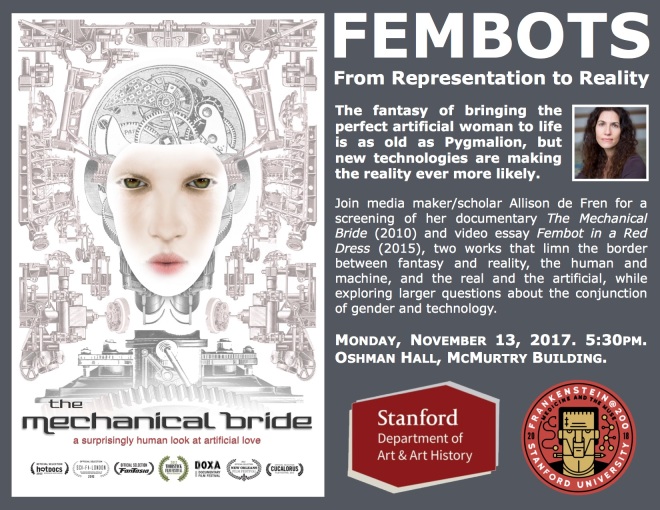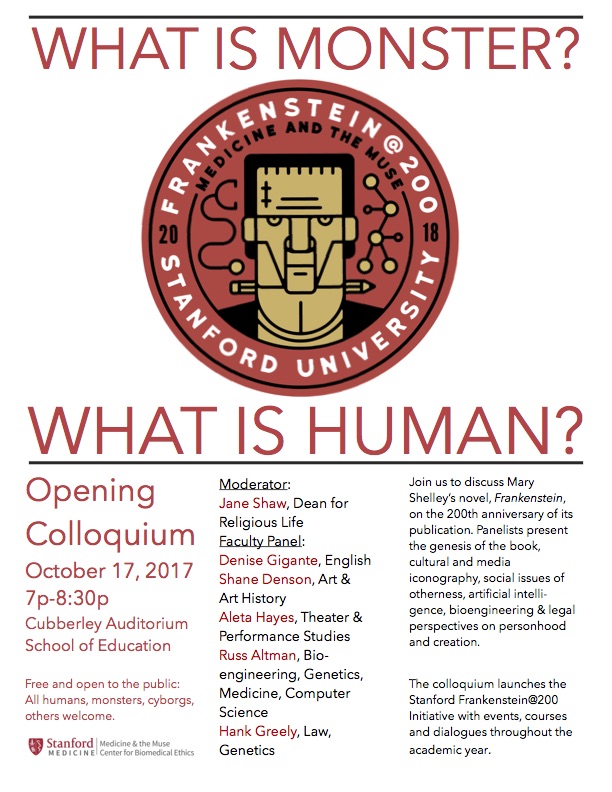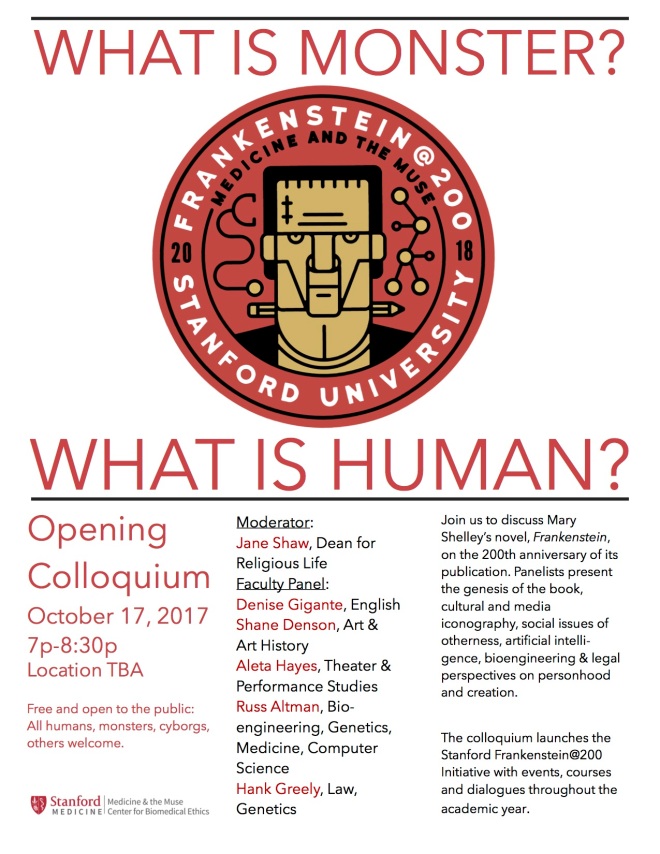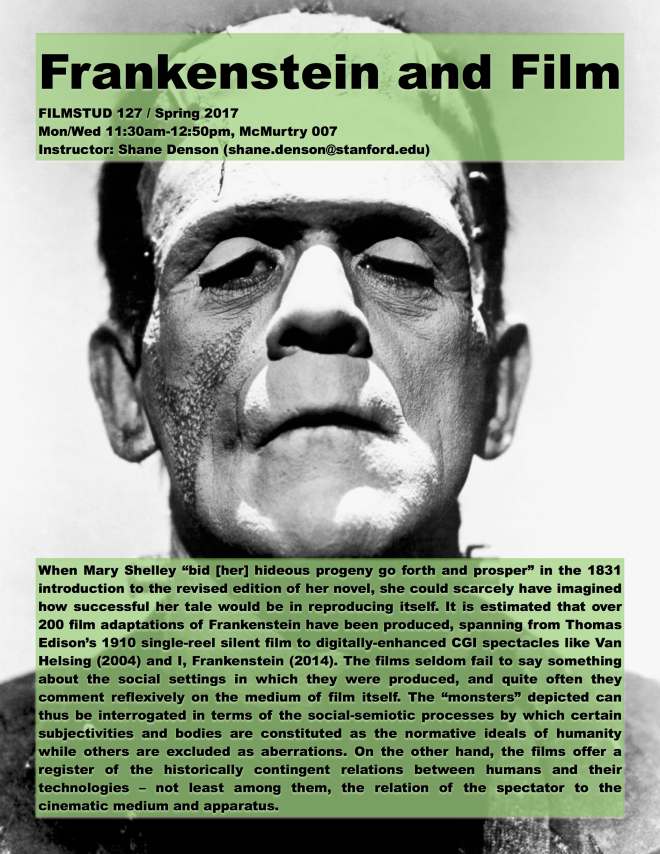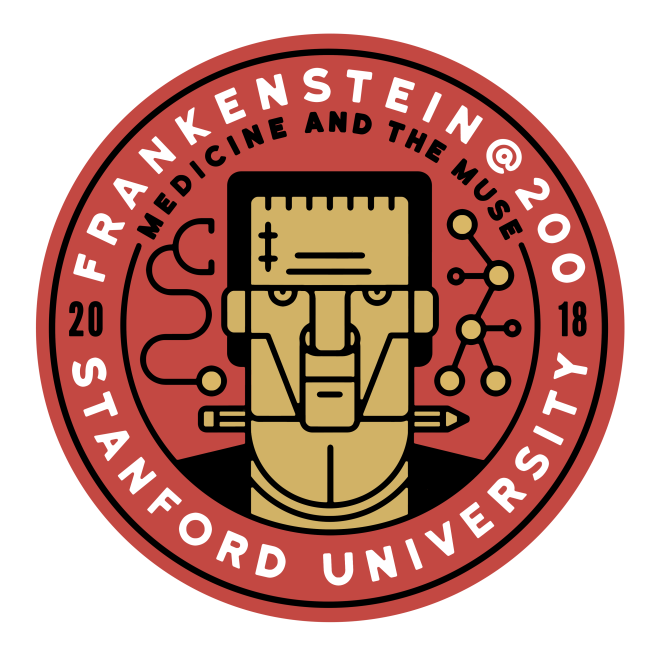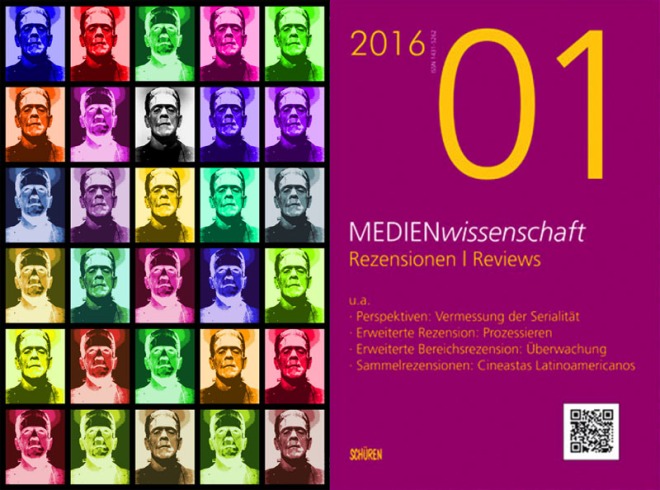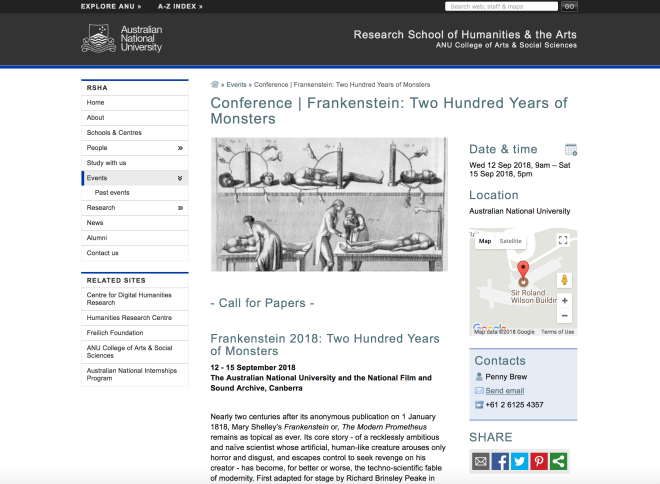
The call for papers is now out for the “Frankenstein 2018: 200 Years of Monsters” conference hosted by the Australian National University and the National Film and Sound Archive in Canberra, Australia (12 – 15 September 2018). I will be giving one of the four keynote talks — on Frankenstein in film and other media. Proposals are being solicited for talks on a range of Frankensteinian topics, including:
- Literary studies, especially of the long eighteenth century, Romanticism, Victorian and neo‐Victorian literature
- Re-tellings and re-‐imaginings of the Frankenstein story in various modes and genres, e.g. SF, steampunk, speculative fiction, slash fiction, etc.
- Film, television, theatre and performance, and visual studies
- Digital humanities, reception studies, histories of popular culture, and media ecologies
- Gender studies, queer theory, and the history of sexuality
- Disability studies and post‐humanism
- The history of medicine, especially reproductive technologies
- Science and technology studies; images and imaginaries of science and scientists
- The history and philosophy of biology, especially in relation to vitalism
- Eco‐criticism and the Anthropocene
- Affect theory and the history of emotions
- Frankenstein and race, colonialism, empire
- Global and local Frankensteins, e.g. Australian Frankensteins
- Frankenstein and material history
- Cyborgs, robots, artificial intelligence, and machine learning
- Synthetic biology, genetic engineering, and artificial life
For more info and the CFP, take a look at the conference website: http://rsha.cass.anu.edu.au/events/conference-frankenstein-two-hundred-years-monsters
